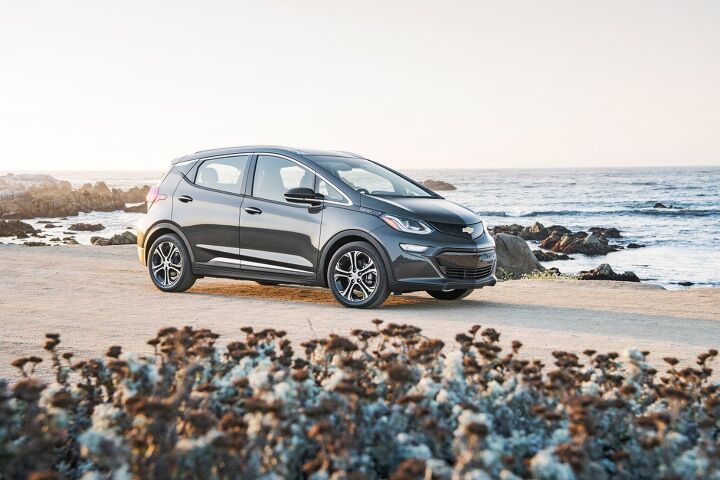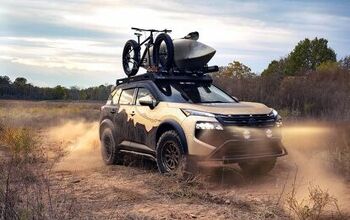With Tax Credit Cut Looming, GM Promises New Incentives for the Chevrolet Bolt

General Motors’ sole electric vehicle, the cheerful Chevrolet Bolt, will see its MSRP stand firm in the face of an EV tax credit that drops by half come April 1st, the automaker claims.
In the fourth quarter of last year, GM sailed past the volume barrier that triggers a wind-down of the federal credit, meaning Bolt buyers will see less of an incentive to get behind the wheel. The $7,500 credit falls to $3,750 next week, before halving again in six months time. Knowing that EV buyers still need a push, GM plans to make the Bolt more attractive to green penny pinchers.
Speaking to Reuters, GM spokesman Jim Cain said “it is easier to react to the market by working with dealers and your marketing team than it is to change sticker prices.”
A base Bolt LT retails for $37,495 after destination and before the federal credit. When GM was shy of the 200,000-unit green cutoff, that placed the after-credit price below $30k. Now, GM will have to compensate for the $3,750 overall price hike.
Tesla, of course, dropped its prices to compensate for a reduced credit, but Tesla prices change more frequently than David Bowie’s 1970s stage persona.
Speaking recently at the Bolt’s birthplace, GM’s Orion Assembly (where a new Chevrolet EV will eventually be built), CEO Mary Barra said her company plans to boost its marketing efforts for electrified vehicles. She did not mention the looming tax credit cut.
While GM plans to offer new Bolt incentives next week, Cain wouldn’t elaborate on what buyers can expect. The company remains “sensitive to affordability,” he said.
Currently, some Bolt customers — those in California, for example — stand to receive a $1,000 cash allowance, with lessees offered (hmmm…) $3,750 cash back.
[Image: General Motors]

More by Steph Willems
Latest Car Reviews
Read moreLatest Product Reviews
Read moreRecent Comments
- Jbltg Nope.
- ChristianWimmer This would be pretty cool - if it kept the cool front end of the standard/AMG G-Class models. The front ends of current Mercedes’ EVs just look lame.
- Master Baiter The new Model 3 Performance is actually tempting, in spite of the crappy ergonomics. 0-60 in under 3 seconds, which is faster than a C8 Corvette, plus it has a back seat and two trunks. And comparable in weight to a BMW M3.
- SCE to AUX The Commies have landed.
- Arthur Dailey The longest we have ever kept a car was 13 years for a Kia Rondo. Only ever had to perform routine 'wear and tear' maintenance. Brake jobs, tire replacements, fluids replacements (per mfg specs), battery replacement, etc. All in all it was an entirely positive ownership experience. The worst ownership experiences from oldest to newest were Ford, Chrysler and Hyundai.Neutral regarding GM, Honda, Nissan (two good, one not so good) and VW (3 good and 1 terrible). Experiences with other manufacturers were all too short to objectively comment on.


































Comments
Join the conversation
18109 Bolts shipped (NOT sold yet) to dealers in the US in 2018. -22.6% from 2017. 3084 Chevy dealers 5.84 Bolts per dealer. 17M US market Wow. Fire 15k people. All electric future, coming soon!
It's not just the increased price, per se, that is hurting sales, but the appearance of similar EVs (Kia NIRO, Hyundai Kona EV, etc) that are every bit as good as the Bolt (or better) and still have their full $7500 Fed tax credits available and will have for quite some time. Their stickers are no higher than the Bolt's, sometimes lower.